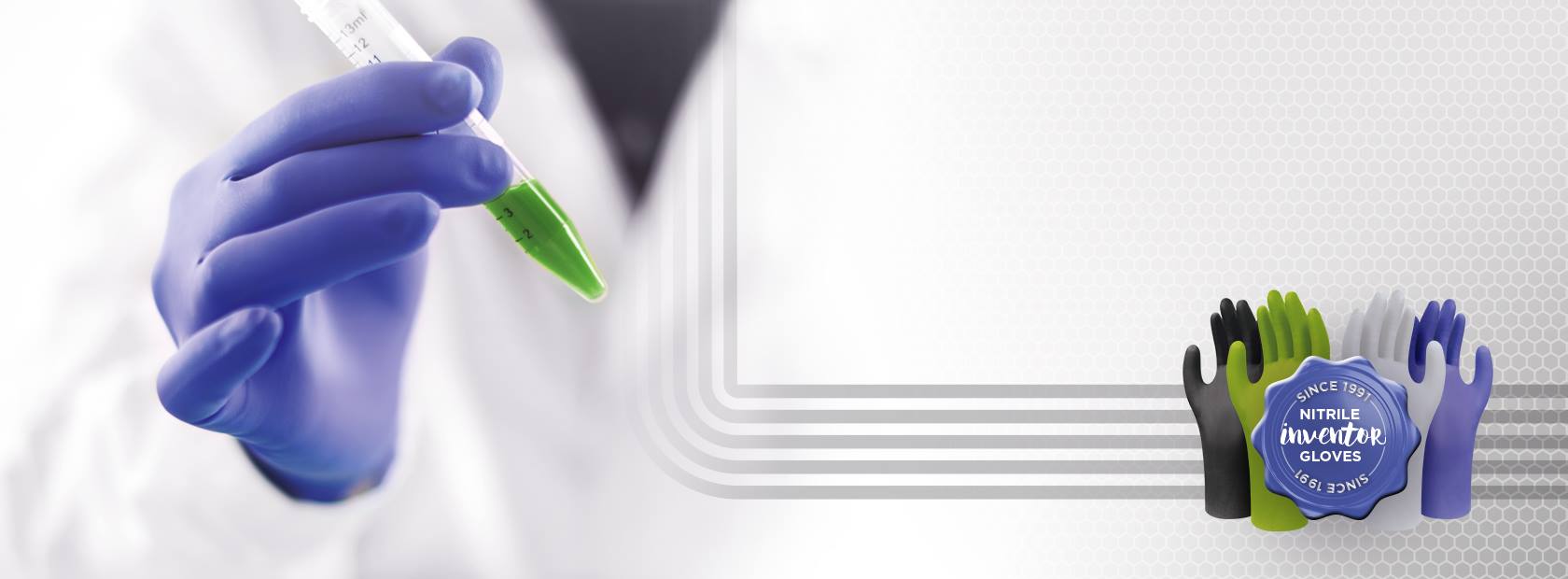Get the Lo' Down on Low-Modulus Nitrile Gloves

Nitrile is a shortened term for Nitrile Butadiene Rubber, or NBR. Nitrile alone, without additives, is a fairly rigid material so glove manufacturers add a small percentage of other chemicals to NBR in order to soften the glove’s texture. While many manufacturers continue to make strides in soft formulation, only one has stood the test of time.
Ahead of its Time
The originator of the single-use glove, Best® Manufacturing Company, commercialized the N-DEX® brand of single-use latex-free gloves back in 1991. The N-DEX® brand was then the first family of soft low-modulus single-use nitrile gloves. This unique formula converts hand heat to soften the glove's texture for a more elastic, softer, flexible and pliable wear experience that elevates tactility, dexterity and comfort with durable barrier properties.
Original is the Best
While glove manufacturers have continued to improve their nitrile glove material formulations over the decades to produce disposable nitrile gloves that are softer and more elastic, this ground breaking glove innovation is still distinguished for its fit and performance today as SHOWA®.

Heat Transfer Technology Softens the Glove's Texture
Modulus is the force necessary to make an object change its shape. When it comes to nitrile gloves, the importance of the low modulus formulation is that low modulus gloves relax and conform to the shape of the hands within a few minutes of wearing. Hand heat softens the texture or reduces the stiffness of the glove resulting in less pressure, reduced discomfort and less hand fatigue. SHOWA® gloves are specially formulated to relax on your hand exerting little to no pressure after just a few minutes.
Bare-Hand Wear Experience

It is called low modulus because it takes a low amount of energy to make the gloves change its shape and conform exactly to the hand. This glove innovation provides wearers with amazing tactile feedback, “skin-like” gripping abilities fresher hands. Other nitrile gloves are made with different formulations that do not relax like the low modulus formulation of the SHOWA® gloves.
Clean Processed
While it’s true that any gloves can cause an allergic reaction, conventional nitrile gloves are more likely to do so than low-modulus nitrile gloves. This is primarily due to the materials and chemicals used to produce the gloves but also influenced by how the gloves are manufactured and processed. To help prevent allergic reactions, low-modulus gloves are cleaned and processed using fewer chemicals.
Fast forward to today and many SHOWA® glove products are copied by companies that have a commitment to piracy, not innovation. SHOWA® is able to distribute unique innovations and offer the broadest line of superior quality single-use gloves that includes the first of their kind single-use Biodegradable Nitrile Gloves that feature Eco-Best Technology® (EBT). Other innovations in nitrile glove development include accelerator-free formulations that lower the risk of Type IV contact dermatitis and ideal for wearers with sensitive skin.
When selecting the ideal glove for your particular needs, there are several factors to consider, including the type of material, thickness, level of protection offered, and level of comfort. With this in mind, low-modulus nitrile gloves are the best choice for professionals who wear gloves all day every day.